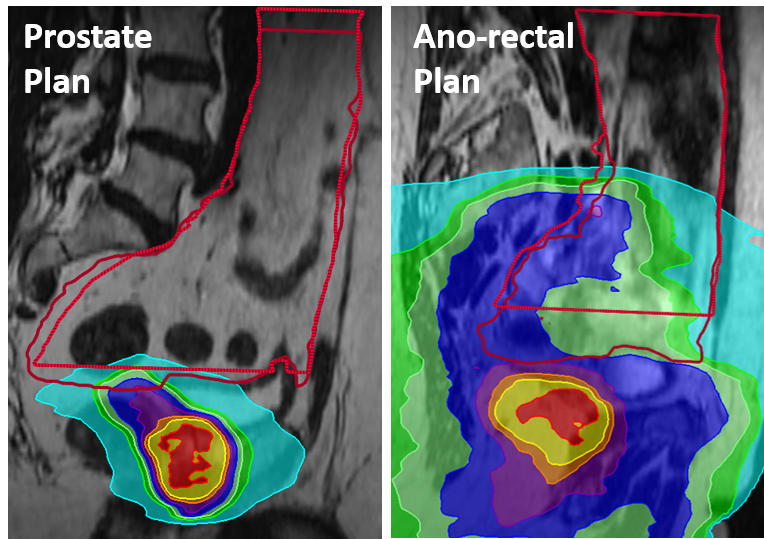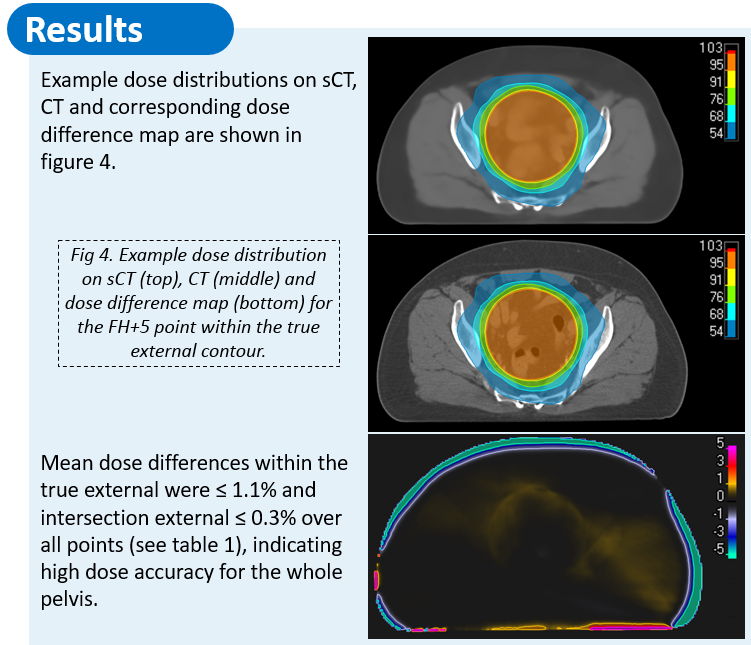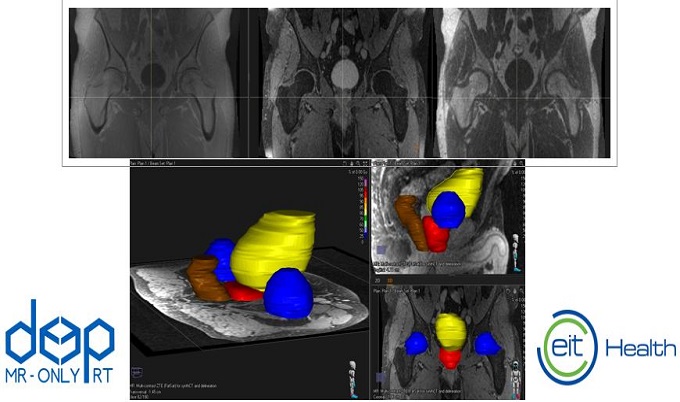Radiotherapy Planning
PET-MR in radiotherapy treatment planning
MR provides superior soft tissue image contrast compared to conventional CT based radiotherapy planning, and the simultaneously acquired PET images provide crucial functional information to further improve the accuracy of tumour delineation. EITH funded projects have developed and tested Deep Learning solutions for synthetic CT generation for radiotherapy treatment dose calculation and automatic delineation of organs-at-risk.

Newcastle is a national leader in utilising MRI in radiotherapy treatment planning and an international leader in MR-only radiotherapy.
The current standard of care in radiotherapy planning process is based on CT imaging. As the treatment delivery technology becomes more precise, the accuracy of treatment is limited by the image quality at the treatment planning stage, and the clinician time required to accurately define the tumour and organs-at-risk. The solutions produced by this project streamline the patient pathway meaning that the patients receive treatment earlier than before, inaccuracies in the imaging process are reduced, leading to more precise treatments, and automation in delineation saved the clinician time and also accelerates the time to treatment.

Deep MR-only Radiotherapy
This project aims to improve outcomes for patients receiving radiotherapy by reducing side effects and increasing the accuracy of their radiotherapy planning through the use of multi-parametric MRI. mpMRI is used to generate an auto-segmented delineation set and an image set for accurate dose calculation.
The project will include PET-MR based radiotherapy planning to further improve tumour delineation and to evaluate tumour response both during and after treatment.

